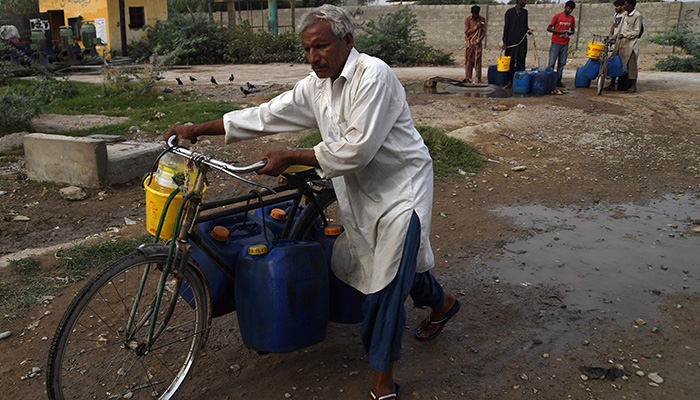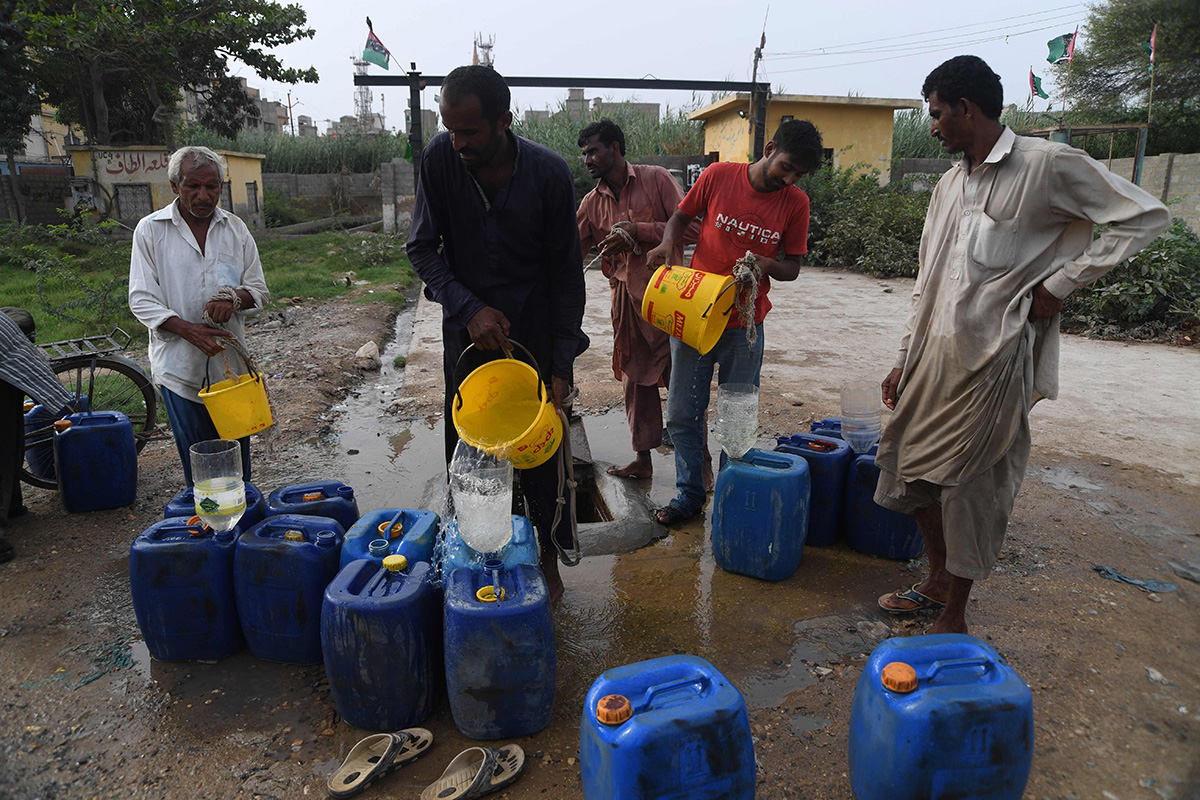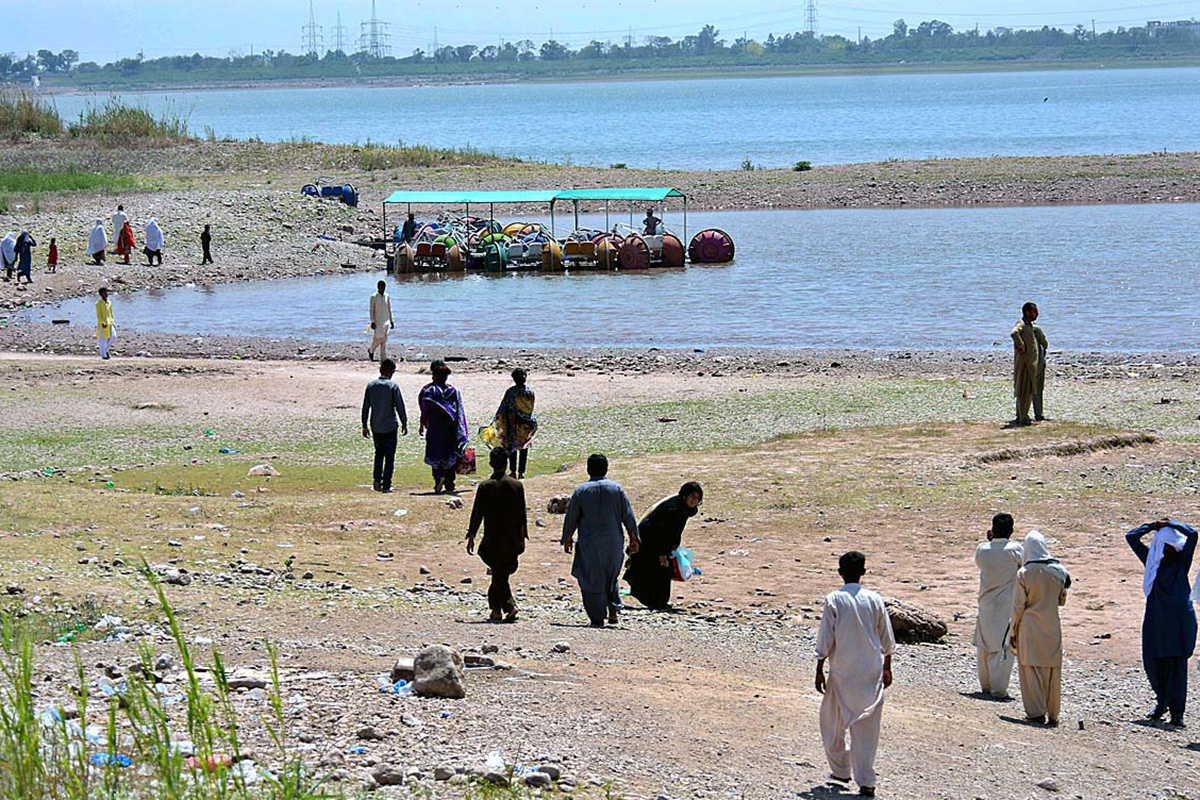
Pakistan is barrelling towards a water crisis, which is more man-made than enforced by nature. For too long now, the sixth most populous country in the world has let its taps run, unchecked and unmonitored.
Agriculture, Pakistan’s second-largest contributor to the GDP, uses 95 per cent of the country's water resources. If the farmers continue to pump water out of the ground heedlessly, then by 2025 there will be a drought-like situation. In other words, Pakistan’s breadbasket is under threat.
But are Pakistan’s largest political parties — the Pakistan Muslim League-Nawaz, the Pakistan Tehreek-e-Insaf and the Pakistan Peoples Party — paying attention?
Here is what their 2018 manifestos say:
The promises:
PML-N - In its 2018 manifesto, the outgoing PML-N took full credit for the country’s first National Water Policy, rolled out in April, barely a month before its tenure ended. If returned to power, they pledge to “develop an integrated plan for water storage...” and “tap into the full potential of the Indus cascade.” In addition, they vow to construct the Diamer-Bhasha Dam and Mohmand Hydropower project, two large projects that have been stalled since 2011. The PML-N also intends to implement a real-time monitoring system of river flows and end flood irrigation practices. Also on the cards is a plan to revise tariffs, establish a standard for drinking water quality and set up desalination plants.
PPP – In order to nib the wastage of water, the PPP plans to introduce legislation that would ensure “proper pricing, bulk metering, conservation, and efficiency improvement measures.” The PPP also aims “to strengthen water governance in the country by balancing the supply side with the demand side.” As for conservation, the party hopes to promote clean energy (therefore, micro-hydels, solar and wind energy), as well as afforestation, by planting trees in previously barren areas.
PTI – The political party hoping to form a government in the centre post-July 25 wants to see the establishment of a “Green Growth Task Force under the Prime Minister’s Cell” — a focused group that will propose legislation and implement mechanisms under the Green Growth Agenda. Some of the legislation they aim to get through the Parliament include mandatory environment education at school levels, green building codes for developers and construction companies, a zero waste policy and the reduction of plastic use. Moreover, the PTI plans to further expand its billion tree tsunami project to a “10 Billion Tree Tsunami" project in five years.

Experts weigh in:
The promises may sound good on paper, but can they be achieved? Geo.tv asks the experts.
Ahmed Rafay Alam, an environment lawyer and activist, says that the PML-N’s proposals of controlling water theft and ensuring real-time monitoring of rivers are doable in theory, but their implementation will not be easy. “There is a lot of mistrust between provinces, especially with regards to water and its distribution. The provinces might not agree even to a method of measurement, let alone a unanimous policy.”
Dr Hassan Abbas, an academic, agrees. Controlling water theft is not possible, he opines, “as long as the canals exist, so will water theft.” Adding that while it may be possible in theory to monitor and control water distribution, it can lead to severe inter-provincial conflicts.
To further drive the point home, Dr Munawar Sabir, a geology professor at the Punjab University, gives the example of electricity theft, which the previous government admitted was hard to curb. “When the PML-N government threatened to cut down power supply in areas where there is power theft, they, in a way confessed to it existence. This was despite the fact that electricity grids are completely under their control as well as its supply. There is no such control over water, whatsoever, so how do they realistically expect to stop water theft?”
As for the National Water Policy, all three experts agreed that it is a hollow document.
“The policy is barely anything more than a political gimmick by the previous government to claim that they have at least done something for the environment. The policy came merely ten days before their tenure was over, without any consideration about implementation.” – Alam
Abbas termed it “a joke”. “It is a cut and paste document. One policy contradicts the other. It seems that they have taken up portions from the water policies in Sweden, Australia, etc.”
The National Water Policy, says Sabir, was “just an attempt on the part of the incumbent government to show that they have done something. There is not much to be hoped from this policy in practical terms.”

The way forward:
Alam suggests political parties avoid vague and wordy manifestos and instead “shut down expansive golf courses, stop using drinkable water to wash cars and to water their gardens. Apart from this, water theft needs to stop and our consumption habits need to change.”
Sabir insists that the water issue needs to be taken by the horns. “It needs to be tackled head-on, like dengue and terrorism. But it can also not be resolved unless the population of the country is also kept in check.”
Abbas has a slightly different take. “There is no such thing as water running out by 2025, but irrespective of where this rumour came from it has given impetus to serious concern for the issue.”


